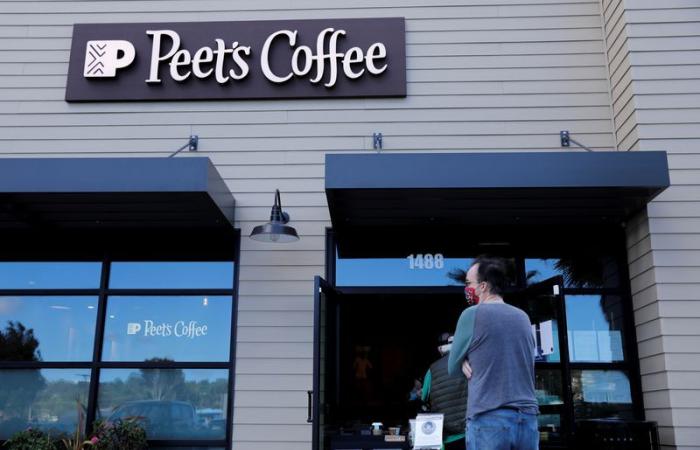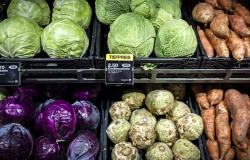Major Brazilian roasters including JDE Peet's, one of the world's largest coffee companies, are expected to raise prices domestically from early next year after unfavorable weather conditions caused prices to spike raw grains.
Global raw coffee prices hit record highs this week and are up some 80% this year as poor weather conditions in Brazil and Vietnam, the world's largest coffee producers, damaged harvest prospects. , and international consumers are expected to feel the effects from the end of March.
JDE Peet's, the maker of brands including Jacobs, L'Or, Tassimo and Douwe Egberts, will raise its prices in Brazil by an average of 30% next year, two traders told Reuters on Wednesday, citing documents sent to customers of the company.
JDE Peet's was not immediately available for comment.
Brazil is the second largest coffee consuming country in the world after the United States. However, traders said coffee multinationals will also seek to raise prices in other markets, many of them later this month or early next year, when their long-term contracts with retailers come up. to expire.
“I think everyone will raise their prices next year,” said a Europe-based trader.
Another major Brazilian roaster, 3 Coracoes, will increase its prices by 11% in January after raising them by 10% in December, while Melitta, also a big player in Brazil, increased its prices by 25% this month after a “recent” increase of 12%, according to documents sent to customers and seen by Reuters.
RETAIL PRICES EXPECTED TO INCREASE
JDE Peet's referred to “climate issues” in a message to customers, saying it would raise prices for roast and ground coffees, coffee beans, soluble coffees, capsules and cappuccinos, according to traders who have read the confidential document.
Melitta said it continued to face rising coffee costs due to the “climate situation”, while 3 Coracoes, a joint venture between Brazil's Sao Miguel and Israel's Strauss, cited climate, l increased demand and economic instability.
Brazil and Vietnam have both experienced drought this year, after the weather has been erratic for several years.
Melitta and 3 Coracoes were not immediately available for comment.
In the last five weeks alone, raw coffee prices have increased by some 30% on international commodity markets.
“Some major European roasters were already planning a 10% increase for the end of December or the beginning of January before this recent move,” said a Europe-based coffee trader. He added that supermarket customers could notice the price increases by the end of March.
Although coffee consumption is generally inelastic, consumers, particularly those in developing countries, may end up responding to rising prices by drinking less of it, he added.
Experts say growth in demand from roasters is likely to slow more significantly because, unlike consumers, coffee companies can respond to rising prices, for example by reducing inventory.
Regardless, coffee producers, particularly those selling primarily to supermarkets, have been scrambling this year to pass on higher prices as consumers increasingly seek cheaper drinks amid cost of living crisis.
The boss of Nestlé, the world's largest coffee company, was ousted earlier this year after the board became unhappy with weak sales growth and loss of market share due to the increase in prices.
Nestlé did not immediately respond to requests for comment on its pricing plans.
Shares of Nestle and JDE Peet's are down more than 20% this year due to margin compression as consumers resist their price increases. In contrast, global stock prices rose by almost 20%.






